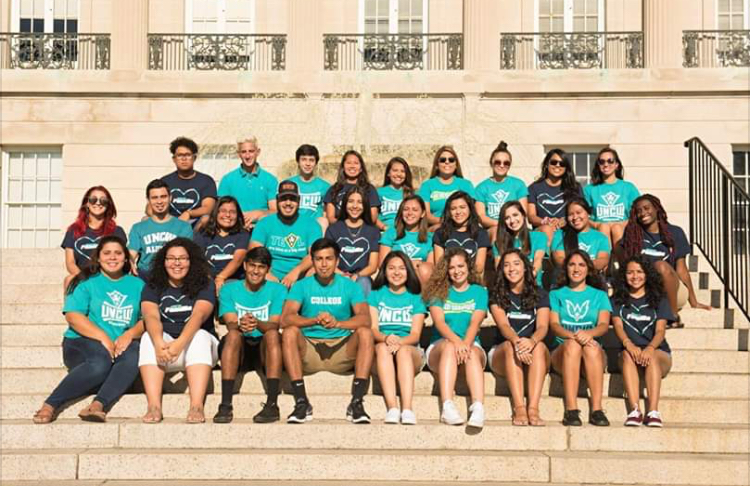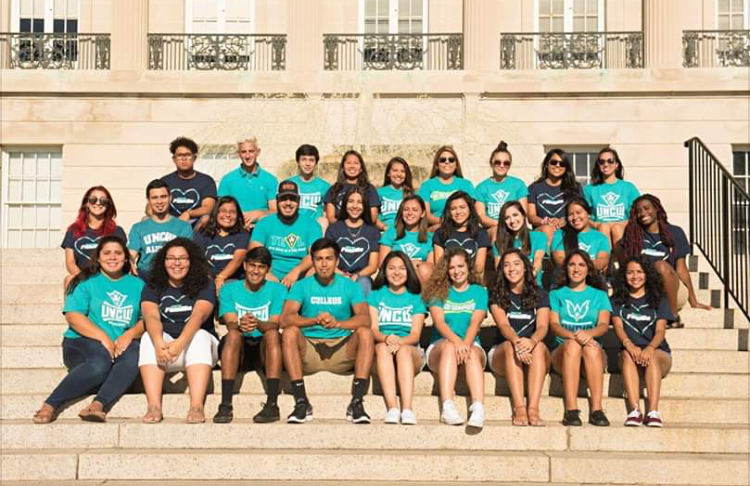
In May 2024, the UNC System Board of Governors voted to repeal all the state universities’ diversity, equity, and inclusion (DEI) requirements. To follow these new policies, the UNC system schools chose to either remove their DEI offices entirely, make smaller changes (such as naming conventions), or not publicly announce how things would change.
UNC Wilmington (UNCW), in particular, chose the first route. In August, Chancellor Dr. Aswani K. Volety announced the closing of the Office of Institutional Diversity and Inclusion. UNCW explained that they would reassign most of the staff members to other offices within the university, but spoke little of how these changes would impact the diversity centers on campus.
As a Black and queer UNCW alumna, I’m devastated. To say that this decision was a slap in the face is an understatement.
I attended UNCW from 2017 to 2020. Between classes, on-campus jobs, and general university life, I spent much of my time at the three DEI centers at UNCW: the Upperman African-American Cultural Center, Centro Hispano, and the LGBTQIA Resource Center. These places were my home away from home, and they shaped me into the person I am today.
Hanging out at the Upperman Center brought me self-acceptance and pride in being a Black person in America. There, I made friends, got involved in activist clubs supervised by staff, and learned more about Black culture through the many programs the center put on. One of my proudest memories is when I became one of the first editors of Seabreeze, a literary journal for Black writers and artists started by another student. The staff even celebrated when the first issue was released, inviting the contributors to read their poems aloud, grab a copy of the magazine, and mingle with everyone. This magazine was so meaningful to me, and it breaks my heart that I don’t know what will happen to it now.
I also owe my appreciation and gratitude to the LGBTQIA Resource Center. When I started school, I was not out; I’d been struggling with my identity since high school. The LGBTQIA Resource Center introduced me to other queer students and staff members who were proud of who they were and had no qualms about anyone questioning their identities — something I immensely struggled with. I remember one time I blurted out that I thought I might be bisexual but didn’t know, and everyone reacted in a nonchalant, supportive way. That was one of the first times I said those words aloud, and it was because I felt so supported by the community. They taught me that sexuality can be fluid, that identities can change over time, and that I don’t need to know “what” I am exactly because not everyone does. Most of all, they taught me that being queer is just another part of me, something that makes me who I am.
Centro Hispano was right across from the Upperman Center at the time, and though I am not Latine, I started hanging out there with a friend. This showed me that the centers are for people of that identity, but also for anyone else open to seeing diversity as just another thing that makes us all unique. I developed a passion for volunteering in the community, as many of the organizations associated with Centro Hispano did community outreach to encourage and help Latine high school students consider and attend college. Learning about similar and different struggles that I, as a Black person, shared with many Latine people gave me another sense of community, and brought me some of the best friends that I know. As UNCW is still a predominantly white institution (PWI), Centro Hispano is a vital place on campus for students and staff members. The last thing they should be doing is downsizing it, and yet here they are.
I could go on and on about my memories at this center, but the most important thing is that they were needed — and still are. These centers had few staff members, and they didn’t always get the support they needed, but support was there, and the students more than appreciated the work they did. The university even opened an Asian Heritage Cultural Center after I graduated, due to pressure from the Asian Student Association and others. To see them make this decision now is even more of a step backward than where they were before.
Keep in mind that these are only my stories. I’m not a current student at UNCW, nor do I have many friends still attending, but I know people who work there. My brother went there before me, and now my sister is attending. I know what it was like to be a minority attending a PWI. All the DEI centers were vital for my development as a person and my sense of belonging.
It’s easy not to worry about being the only “othered” person in the room if you’re almost always part of the majority. Do you know what it feels like to be the only person of color in the room? Do you know what it’s like to not know if your professor is homophobic, or if someone may hate you simply because you’re queer? Do you know what it’s like to be othered?
The UNC Board of Governors doesn’t, and neither do the people at UNCW who made this decision. And they don’t care about people who don’t look like them or share their identity. They decided that DEI wasn’t important and to just throw it out, and they did this not long before students started going back to school.
I don’t know how this will impact students, faculty, or staff. I don’t know what the future at UNCW will look like. However, I do know that students have protested against this egregious policy change, as well as many of my fellow alumnae. It was one thing to have DEI only because it was required; it’s another thing to completely disinvest in it. As long as those places were there, students could still find support through programming and mentors.
All I know right now is that I’m not giving a dime back to UNCW. And if enrollment rates go down, and donations decrease, and they find that more students will attend Historically Black Colleges and Universities (HBCUs) and places that care about diversity, maybe things will change. My fellow alumnae and students deserve better.
Photo provided by the author

There are no comments
Add yours